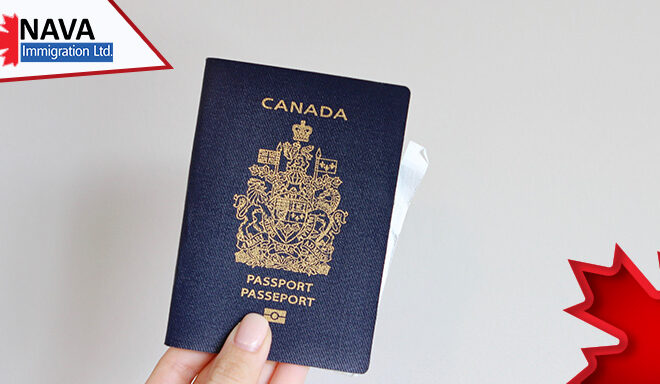How To Get Money From Employment Insurance If You Are Laid Off
Lost your job without your fault? Here’s how to get money from employment insurance if you are laid off in Canada.
Well, if you have lost your job in Canada, you might be eligible to obtain money from the federal government’s employment insurance program. Moreover, if you lose your job through no fault of your own, EI regular benefits can replace a portion of your lost income while you search for your next job – up to $668 per week in 2024.
What Is Employment Insurance?
Employment Insurance (EI) in Canada replaces workers’ lost income during periods of unemployment.
Regular benefits provide temporary financial support if you have lost your job through no fault of your own.
Am I Eligible For Employment Insurance As A Temporary Foreign Worker?
In order to get money from employment insurance if you are laid off in Canada, it is important to know your eligibility.
Temporary foreign workers are also eligible for regular benefits, provided they meet the required eligibility criteria mentioned below and have a valid work permit.
If you can hold an open work permit and it remains valid, you can claim EI benefits provided that you meet all the conditions.
If you are on a closed work permit, on the other hand, you can still file a claim, although there’s a chance that your claim will be refused on account of your work status being tied to the employer named on your work permit. That said, in some cases, temporary foreign workers on closed work permits have been successful in obtaining EI benefits.
Those working for Canadian companies and living outside of Canada can get EI. However, this does not apply if their job is covered by employer insurance in the country in which they are working.
Am I Eligible For Employment Insurance?
To be eligible for employment instance, you need to meet the following requirements:
- Have worked enough insurable hours during a qualifying time period
- Have lost your job through no fault of your own
- Have not had work and pay for a minimum of seven consecutive days in the last 52 weeks
- Be in Canada
- Be actively looking for work
- Be ready, willing, and capable of working each day
If your employment is ‘insurable employment,’ your employer deduct EI premiums from your pay. You should see these deductions listed on your pay stub.
The number of insurable hours you need to have worked to qualify for regular benefits depends on the unemployment rate in your area and is usually between 420 and 700 hours of insurable employment.
The qualifying period of time is usually the 52-week period immediately before the start date of your claim.
You are not eligible for EI if you left your job voluntarily.
You must have lost income in order to obtain regular benefits. The purpose of the EI program is to replace lost income, not to enrich claimants.
Thus, if you have received pay in lieu of notice or a severance package, you can apply for EI immediately but will not be eligible to obtain any benefits until the period covered by your severance has elapsed.
You usually can’t obtain regular benefits while outside Canada. However, exceptions are there if you can prove you are still available for work in Canada during your time abroad.
While obtaining regular benefits, you should be ready and willing to work and must be actively looking for work. If you are not ready, willing to work, and actively seeking employment, you cannot obtain EI benefits. You should keep records of your job search activities to provide to Service Canada upon request.
If you apply for EI and receive benefit payments for which you were not eligible, you will then need to repay those benefits.
How Much Can I Obtain?
To get money from employment insurance if you are laid off in Canada, you must know how much money you can obtain.
Well, the amount of money you receive as EI will vary based on several factors, including your earnings and the unemployment rate in your region at the time of filing your claim.
For most, the basic rate for calculating EI is 55% of the average insurable weekly earnings, up to a maximum amount.
The current maximum yearly insurance earnings is $63,200. This implies that the maximum weekly amount you can get as employment insurance is $668.
EI benefits are taxable. You can expect Service Canada to withhold a portion of each payment for income taxes, and you will owe income taxes at your marginal rate on all earnings you obtain from regular benefits.
Note that insurable earnings refer to the total earnings on a statement/ salary slip before income tax & other deductions. They include different kinds of compensation from employment, such as wages, bonuses, and tips.
How long can you obtain EI depends on the following:
- The unemployment rate in your region at the time of filing your claim
- The amount of insurable hours you have accumulated in the last 52 weeks or since your claim, whichever is shorter
Based on these factors, it can get anywhere between 14 and 45 weeks.
What Do I Do If I Get Laid Off?
Step 1: Apply Immediately
The Canadian government advises you to apply for EI as soon as you stop working, as it can take some time for your benefits to begin.
In order to apply, you need to fill out an online application. You will have to provide your:
- SIN
- Bank details
- Details about your employment
- Mailing and residential address
- Details about yourself
The online application takes roughly an hour to fill out.
If you stop part way through the application before submitting it, the information you have entered will be saved for three days, should you choose to resume completing the application.
If you stop part way through your application and do not complete and submit it within three days, the information you have entered will be deleted, and you will have to start a new application.
Step 2: Check Regarding Your Records Of Employment (ROEs)
The government needs your records of employment to determine how much EI benefits you are eligible for.
Your former employer should issue your ROE within five calendar days after the final pay period. They may issue this directly to you, or they could choose to send your ROE to Service Canada.
If they issue the ROE to you, you need to submit this to Service Canada.
Note that Service Canada recommends applying for EI immediately after losing the job to avoid delays in payment, even if you haven’t got your ROE.
Step 3: Share Further Information, If Contacted
Service Canada might reach out to you via email if they have any questions.
Most likely, they will ask you to call them to provide more information. They don’t ask for much information via email.
Step 4: Wait For A Decision
You can expect the government to decide on your claim within 28 days of filing your claim.
You can review the status of your application by signing into your My Service Canada Account (MSCA).
Ensure your banking details and contact details are up-to-date.
Step 5: Submit Bi-Weekly Reports
If your claim is approved, you will need to submit online reports to Service Canada every two weeks to continue receiving benefits.
After you apply for EI, you will obtain a four-digit code by mail. Keep this number safe, as you will need it and your Social Insurance Number (SIN) to complete EI reports.
If you return to work or otherwise earn any money during this period, you must mention this in your report.
When Will EI Money Be Deposited Into My Account?
There is a waiting period of one week before you become eligible to receive benefits. So, for the 5-week period following having lost your job, you would receive four weeks’ worth of regular benefits.
While you are obtaining EI benefits, you will receive the payments after you submit your bi-weekly report. It might take 2-3 business days to see the money in your account after submitting the report.
You will stop receiving Employment insurance will once:
- Your payment timeframe ends
- You terminate your claim to file a new claim
- You stop filing your reports
- You find a new full-time job
What Happens If I Find Part-Time Work While Obtaining Regular Benefits?
In order to get money from employment insurance if you are laid off in Canada, you need to know what happens in case you get a part-time job.
Well, if this is the case, you might be eligible for employment insurance even if you get a part-time job or contract work.
Any money earned during this period has to be there in your bi-weekly reports.
Based on this, every dollar you earn from work will reduce your EI benefits only by 50 cents, allowing you to earn up to 90% of your weekly insurable earnings, compared to the 55% you could obtain while collecting EI alone.
Your employment earnings above the 90% cap will be deducted from your benefits, dollar for dollar.
Failing to report earnings while receiving EI causes overpayment, requiring repayment of the excess funds.
How To Get My Service Canada Account (MSCA)?
My Service Canada Account is an online portal where you can access government services and benefits, such as the Canada Pension Plan, Old Age Security, and EI.
You have several options for validating your identity for opening and signing into your MSCA account:
- GCKey: You can create a GCKey account and password. You might need to supply information such as your SIN number.
- Interact Sign-In Partner: You can use your Canadian financial institution’s online banking service to sign into MSCA.
- Provincial Digital ID: If you have an Alberta.ca account or a BC Services card, you might register an account using this option.
How To Set Up Payment/ Banking Information?
In order to set up direct deposit, you can fill out, print, and mail the direct deposit form, which is available online, directly to Service Canada.
You can also call a Service Canada call center or visit a Service Canada Office.
You will need your bank account number, bank transit number, and institution number. These details should be on a cheque or through your online banking portal.
If you seek information on how to begin your Canada immigration application process, you can talk to our NavaImmigration experts at 1800-918-8490, or you can drop us an email at [email protected].





